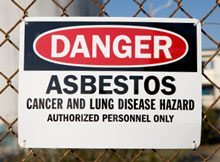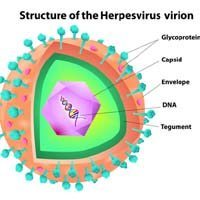Mesothelioma Clinical Trials: Are Minorities Underrepresented?
 The results of a new study from Harvard and Dana Farber Cancer Institute raise the question of whether ethnic minorities are being fairly represented in mesothelioma clinical trials.
The results of a new study from Harvard and Dana Farber Cancer Institute raise the question of whether ethnic minorities are being fairly represented in mesothelioma clinical trials.
The study focused on four of the most common types of cancer in the US: breast, prostate, lung, and colorectal cancer.
It looked at demographic data for close to 6,000 people enrolled in precision oncology trials for these cancers. Researchers found that clinical trials tend to favor white and Asian patients over Hispanic and black patients.
The study could have implications for mesothelioma clinical trials of new, tailored treatments.
Precision Oncology and Mesothelioma Clinical Trials
Malignant mesothelioma is a challenging cancer to treat. Mesothelioma cells are good at protecting themselves from damaging cancer drugs and even radiation. Most mesothelioma treatments only slow this cancer down temporarily.
That is why a growing number of mesothelioma clinical trials focus on precision oncology. Precision oncology is the term for cancer treatment based on the molecular makeup of a tumor.
Not all mesothelioma tumors are the same. Some are more likely to respond to certain treatments than others.
Immunotherapy drugs like Opdivo, Keytruda, and Yervoy are examples of precision medicine. These drugs are most likely to help patients whose tumors express certain proteins. Precision oncology allows doctors to create more personalized treatments for mesothelioma.
But mesothelioma clinical trials of these new kinds of treatments are only relevant if they include a balanced representation of the kinds of patients who actually get mesothelioma. The new JAMA study suggests that this might not always be happening.
Racial and Ethnic Diversity in Precision Cancer Research
The goal of the new study was to examine the racial and ethnic diversity in precision oncology trials. The research team used information from the US Surveillance, Epidemiology and End Results (SEER) database as well as US census data.
The researchers analyzed 93 studies including 5,867 cancer patients. The analysis showed that these studies have too many of certain ethnicities and not enough of others.
“By individual cancer site, White participants were consistently overrepresented in all studies, while Black and Hispanic participants were underrepresented,” writes lead author Christopher Aldrighetti, BS, of Harvard Medical School.
The study did not include any mesothelioma clinical trials. Mesothelioma is a rare cancer with relatively small numbers of patients. But the study did include trials of lung cancer, which is similar to pleural mesothelioma.
Eighty-two percent of trial participants were white. Only 10 percent were black and 4 percent were Asian. These numbers were too low relative to the cancer rates among these groups in the general population. The team concludes that there is an “urgent need” for more diversity in precision oncology trials.
Research studies are an important option for people with mesothelioma. In the absence of proven treatments, mesothelioma clinical trials are often the best way for patients to access promising new therapies.
Source:
Aldrighetti, C, et al, “Racial and Ethnic Disparities Among Participants in Precision Oncology Clinical Studies”, November 8, 2021, JAMA Network Open, https://jamanetwork.com/journals/jamanetworkopen/fullarticle/2785786





